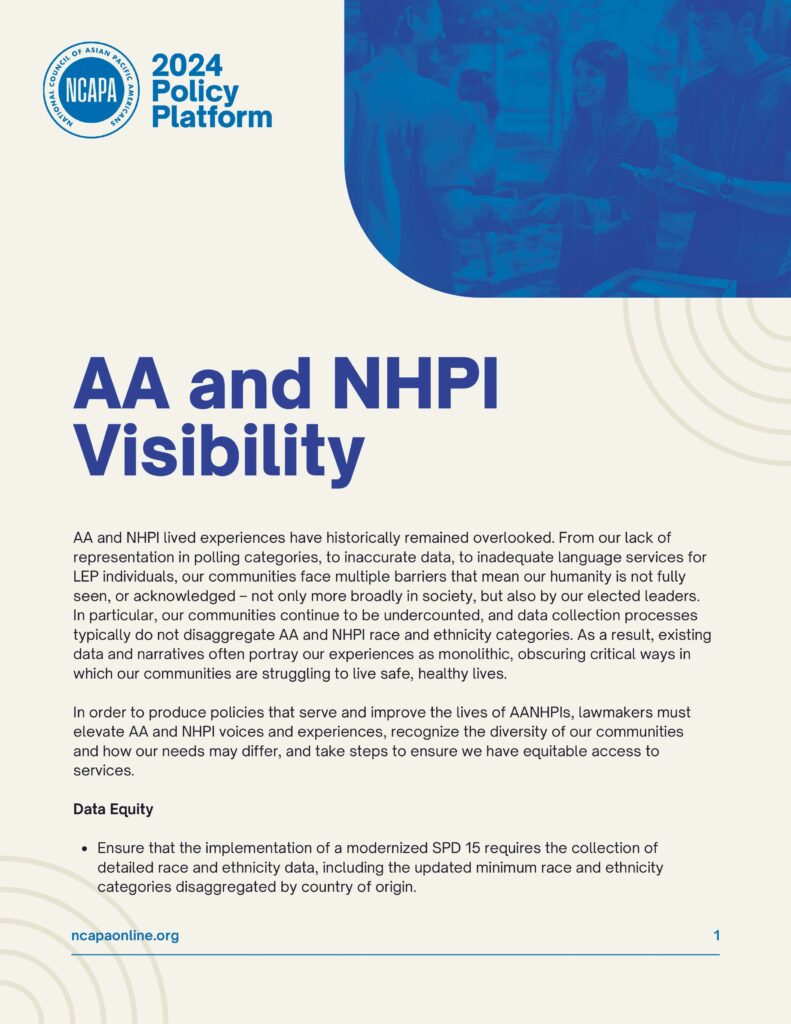Asians, Native Hawaiians, and Pacific Islanders have historically been rendered invisible – not only within the U.S., but globally. In the United States, this invisibilization can often take the form of a lack of representation in polling categories, inadequate data, and inadequate language services for Limited English Proficient (LEP) individuals. Lack of understanding or appreciation for the diversity of our communities reduces us to a monolith, obscuring our humanity. Our communities are often ignored or told that our problems are insignificant due to assumptions about our universal success, and we may be left out of conversations about diversity, equity, and inclusion.
These barriers mean that the society we live in – and the elected leaders who represent us – often do not understand the issues our communities face, or our political priorities. We need better visibility for AAs and NHPIs to ensure that our communities are not portrayed as a monolith, and that the diversity of our experiences is not flattened into stereotypes.
One of the most important ways we can increase our visibility is to ensure that government agencies, and organizations that conduct polling, disaggregate data by ethnicity for AA and NHPI communities. Existing data and narratives often fail to illuminate the ways political views, access to higher education, and health outcomes among our community differ – obscuring critical ways in which we are struggling to live safe, healthy lives.
NCAPA calls on lawmakers to elevate AA and NHPI voices and experiences, recognize the diversity of our communities and how our needs may differ, and take steps to ensure we have equitable access to services.
